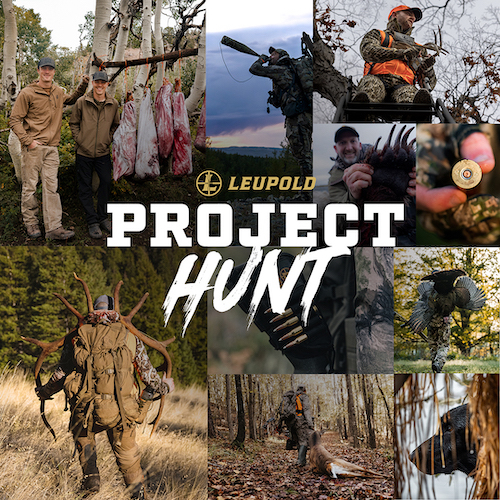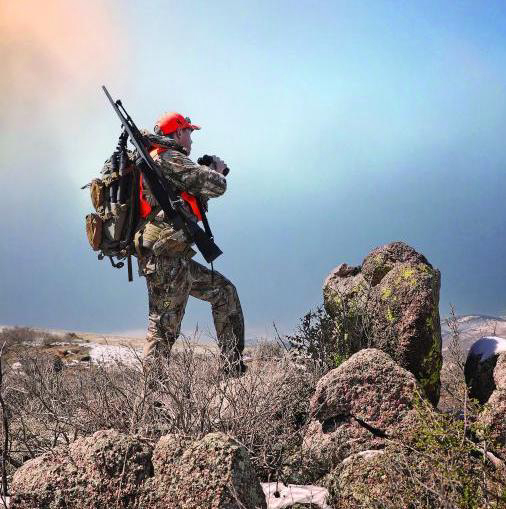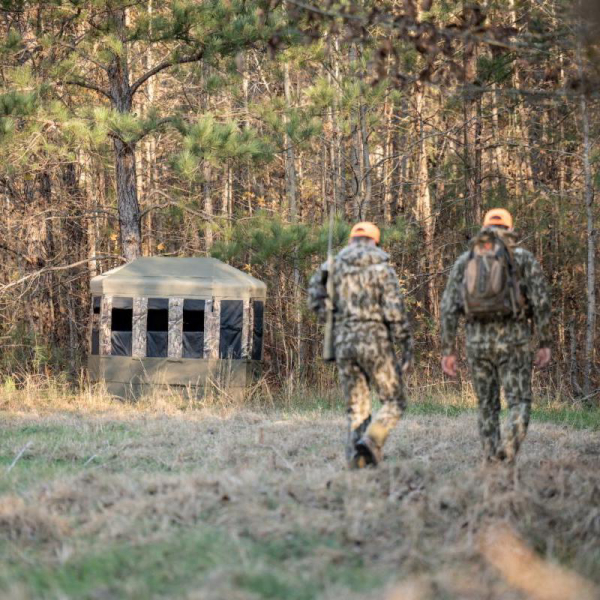For hunters who want to stay concealed, comfortable, and successful from the ground, Millennium Treestands® Antler Shak 30-06 Ground Blind is a proven performer. Packed with thoughtful features and smart design, the Antler Shak 30-06 offers unbeatable visibility, concealment, and durability throughout the hunting season.
Built to own the whitetail woods, the Antler Shak 30-06 includes six (6) Full-view mesh panels that allow for 180º panoramic views—so hunters see everything while remaining unseen. Each window features an adjustable shooting rest and a blacked-out finish to prevent silhouettes from being exposed. Inside, the dark interior helps further conceal the hunter from wary game.
Whether hunting with a rifle, crossbow, or vertical bow, this blind delivers the space and versatility to do the job. There’s plenty of room for gear and a hunting partner, and the water-resistant fabric and powder-coated steel frame keep things quiet, dry, and long-lasting. Integrated brush loops allow hunters to match the blind to any terrain for ultimate concealment.
Once the season wraps up, the Antler Shak 30-06 breaks down quickly for easy storage—keeping it in top shape year after year. For those who take their ground game seriously, Millennium Treestands’ Antler Shak 30-06 Ground Blind offers the best seat in the house.
Antler Shak Features: Read more







